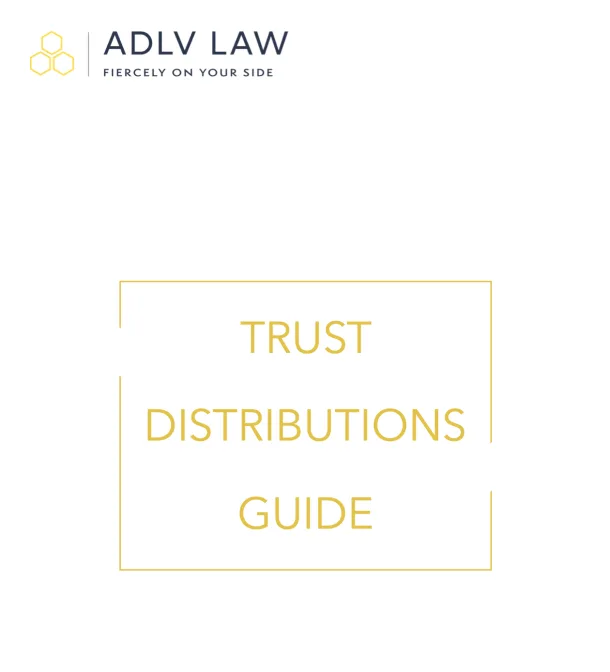Below is Chapter 4 of our ‘Trust Distributions Guide’ booklet. To read the other chapters of our booklet, click the links below:
- Chapter 1: Understanding the Nature of Trusts
- Chapter 2: Defining and Determining Trust Law Income
- Chapter 3: Making Effective Distributions
- Chapter 5: Risk Management and Common Traps
- Chapter 6: Summary and How we can Help
When must trust law income be distributed?
It has always been a trust law requirement that trust law income be distributed to beneficiaries before the end of each accounting period for the trust. If the trust law income was not distributed before the end of the accounting period, then either the trust law income was subject to a default distribution under the trust deed, or was ‘accumulated’ to corpus.
For some time, the ATO accepted that trustees could take up to 2 months to finalise accounts and put in place distribution minutes after the end of the year. This concession was withdrawn in 2011, along with the withdrawal of IT 328 and IT 329.
Most trust deeds also provide that the trustee can make interim distributions of trust law income throughout the year. This is only possible if the trustee has the authority to effectively break the accounting period up into sub-periods, and to determine the extent of trust law income for the relevant sub-period. An interim distribution, if it can be made, must be minuted in the same manner as end-of-year distributions.
Who can trust law income be distributed to?
The trustee can only distribute trust law income to a person who qualifies as a beneficiary under the trust deed. A common mistake that people make is to attempt to distribute trust law income to someone who is not a beneficiary under the trust deed. You can only make distributions of trust law income to trust beneficiaries.
IMPORTANT: While a trust deed may give the trustee a very wide discretion to choose who among the potential beneficiaries receives income, recent case law has placed strict requirements on how this discretion must be exercised. While the trustee may decide not to benefit someone, the trustee must only do this after genuinely considering their individual circumstances and needs. The trustee must maintain evidence that they have undertaken this process of ‘consideration’, otherwise the exercise of their discretion may be void.
Who can make distributions?
Only the current trustee of the trust can make valid distributions to beneficiaries of the trust. The valid trustee of the trust should be identified at the relevant time, i.e. during the year, in the case of an interim distribution, or at year end, for final distributions.
Where there is a corporate trustee, the directors of the trustee company can attend a meeting, including by telephone, as contemplated by section 248D of Corporations Act 2001 (Cth). Alternatively, all directors can sign a circulating resolution under section 248A Corporations Act 2001 (Cth). The resolution is passed when the last director signs (s.248A(3)). The advantage of a circulating resolution is that an actual meeting does not have to be held.
Under section 251A(1) of the Corporations Act 2001 (Cth), a minute or resolution can be inserted into the minute book up to one month after the resolution is passed. This means that if a resolution is passed on 30 June, the minute can be prepared and signed by 31 July. However, the ATO has taken a much stricter approach to the timing of resolutions. Effectively, the deadline for recording a resolution is 30 June for each year.
Section 248B of the Corporations Act 2001 (Cth) in relation to sole director companies states that a sole director may pass a resolution by recording it and signing the record. As you will see from this commentary, the actual wording of a trust resolution to distribute income is critically important to ensure the distribution is effective for trust law and tax law purposes. There is no standard trustee resolution that covers all the different options relating to the various definitions prescribed by all trust deeds.
Read the Deed!
While trusts have similar characteristics, each trust is governed by its own trust deed. You need to read and understand the deed to ensure your distributions are effective.
Whether you are a trustee, advisor, or beneficiary, our team can help you understand your rights and responsibilities and avoid costly mistakes. Call us on 1300 654 590 or email us to make your trust distributions smarter, safer, and more strategic.
The information contained in this post is current at the date of editing – 22 August 2025.






